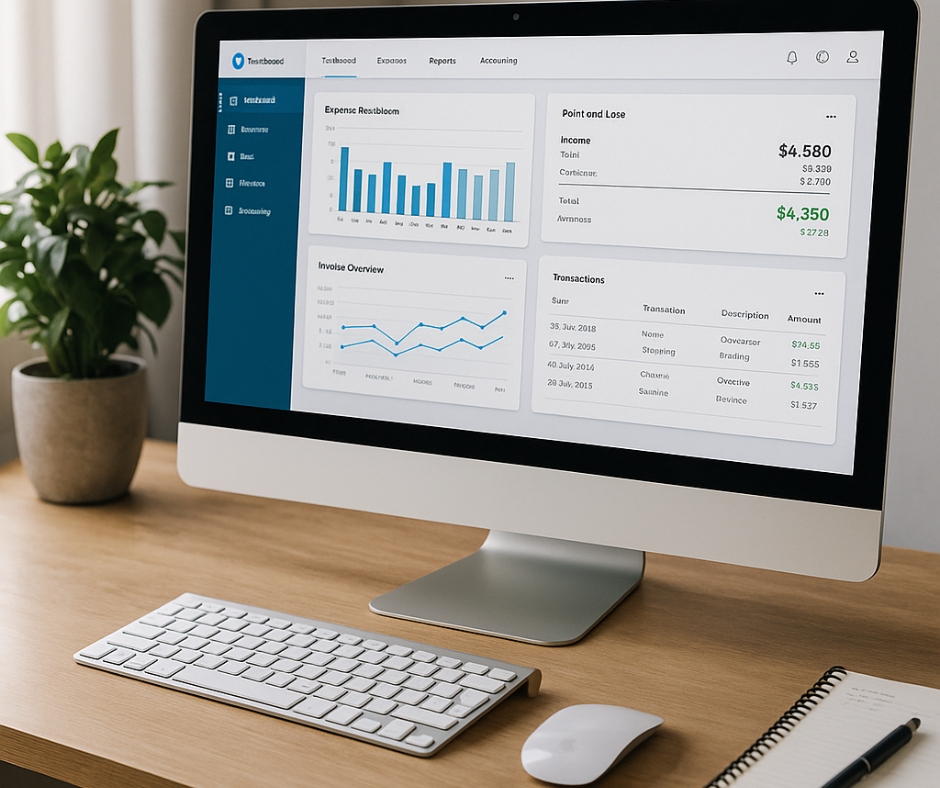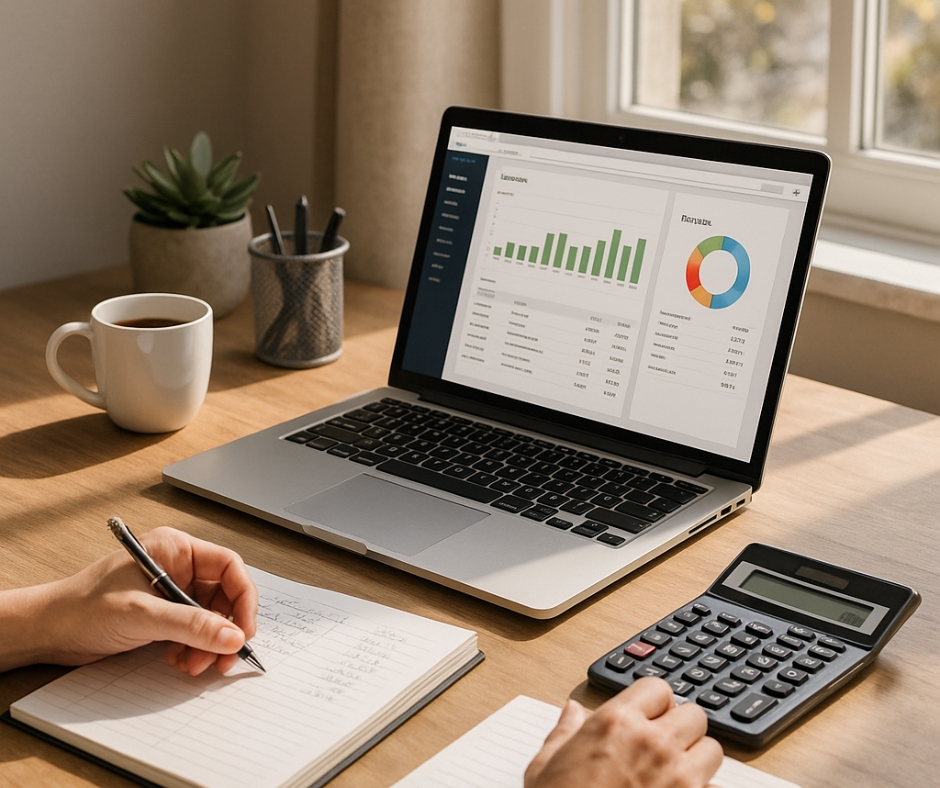As a freelancer or solopreneur, you likely wear multiple hats—creator, marketer, salesperson, and CEO. However, one of the most vital roles you must play is that of the bookkeeper. Without mastering bookkeeping basics, it’s difficult to grow your business sustainably. You need accurate financial records not only for taxes but also for daily decision-making, forecasting, and proving your financial stability.
While bookkeeping might seem intimidating, breaking it down into manageable pieces makes it approachable—even empowering. In this guide, you’ll learn everything you need to know to take control of your freelance or solo business finances.
💡 Why Bookkeeping Matters More Than You Think
Bookkeeping isn’t just about being ready for tax time. It’s a strategic pillar for business growth.
When you track every dollar coming in and going out, you gain insight into your cash flow, profitability, and spending habits. These insights allow you to make informed business decisions like:
- When to invest in tools or services
- Whether you can afford to hire help
- How to price your offerings
- How to weather a dry sales month
For example, if your records show you consistently spend 30% of income on software, you might re-evaluate those tools. Or, if you spot a pattern of late-paying clients, you can adjust your invoicing terms. Bookkeeping gives you visibility—and visibility leads to control.
🛠️ Setting Up a Simple and Effective Bookkeeping System
Before you can begin tracking anything, you need to set up a foundational system that suits your business style.
Choose Your Method:
- Spreadsheet Systems: Great for early-stage freelancers. Use Excel or Google Sheets to build a chart with income, expenses, dates, descriptions, and payment methods. Free, but manual.
- Bookkeeping Software: Tools like QuickBooks, Wave, or FreshBooks can automate much of the process. They connect with your bank, categorize transactions, and generate reports.
- Hiring a Bookkeeper: As you scale, outsourcing becomes time-saving and financially smart.
Create Financial Categories:
To get clarity, you need organization. Categorize your income and expenses consistently. Common categories include:
- Revenue (by service/product type)
- Software and subscriptions
- Marketing and advertising
- Office supplies
- Professional development
- Contractor payments
- Meals and travel
- Home office expenses
These categories not only help you stay organized—they’re also crucial for identifying deductions come tax season.
Establish Weekly & Monthly Rituals:
- Weekly: Log new transactions, match receipts, update client payments.
- Monthly: Reconcile accounts, run a profit & loss report, evaluate performance.
Making this a habit prevents overwhelm and gives you consistent awareness of your business health.
💳 Tracking Income and Expenses Accurately
Consistent and accurate tracking forms the core of successful bookkeeping.
Best Practices:
- Use a Business Bank Account: This makes tracking cleaner and keeps you IRS-compliant.
- Automate with Software: Link your account to pull in transactions daily.
- Save Digital Receipts: Use apps like Expensify or simply store PDFs in Google Drive.
- Match Invoices to Deposits: Keep a clear trail of each income source.
- Log Cash Payments Manually: If you accept cash, create a dated record with service type and client name.
Pro Tip:
Reconcile your accounts monthly by comparing your bank statement to your records. If something doesn’t match, investigate. It’s a safeguard against both mistakes and fraud.
🔀 Separating Business and Personal Finances
This step is one of the most overlooked by new freelancers—and one of the most important.
Why separation matters:
- Avoids confusion and messy records
- Helps you clearly identify business deductions
- Makes tax time dramatically easier
- Builds legitimacy if you’re ever audited or apply for funding
Action Steps:
- Open a Business Checking Account under your business name or DBA.
- Get a Business Debit/Credit Card for all purchases.
- Use Separate Payment Processors: Set up PayPal or Stripe accounts strictly for business use.
- Pay Yourself with Transfers: Instead of using your business funds directly, transfer a set amount to your personal account each week or month.
Over time, this structure supports your scalability and professionalism.
💼 Planning for Taxes Proactively
Taxes are not something to tackle once a year—they are something you plan for all year.
Estimated Quarterly Taxes:
Freelancers are typically required to pay taxes quarterly. These include:
- Self-employment tax (Social Security and Medicare)
- Federal income tax
- State taxes (if applicable)
How to Prepare:
- Calculate your estimated tax rate (usually 25–30% of income).
- Open a separate savings account and deposit a percentage of every payment received.
- Mark quarterly due dates (Jan 15, Apr 15, Jun 15, Sep 15) in your calendar.
- Use tools like QuickBooks Self-Employed or consult a CPA to estimate accurately.
Tax Write-Offs to Track:
- Home office deductions
- Internet and phone use
- Business meals and travel
- Software and online tools
- Professional development (courses, books)
- Marketing expenses
Knowing what’s deductible in advance ensures you keep good records and save money.
🚫 Bookkeeping Mistakes to Avoid
Even with the best intentions, freelancers fall into these common traps:
1. Waiting Until Tax Season
Trying to log a year’s worth of data in April is not only exhausting—it’s error-prone and stressful.
2. Mixing Business and Personal Transactions
This can cause you to miss deductions or misreport income.
3. Not Following Up on Invoices
Always track who owes you what. Use invoicing software with automated reminders.
4. Relying on Bank Statements Alone
They don’t show what each purchase was for or whether an invoice was paid.
5. Ignoring Financial Reports
Run monthly P&L (Profit and Loss) and cash flow reports to spot trends, opportunities, or issues early.
By actively avoiding these, you keep your finances healthy and scalable.
✅ Conclusion: Embrace Bookkeeping to Build Confidence and Clarity
When you understand and implement bookkeeping basics, your business becomes far more than a hustle—it becomes a structured, thriving venture. With every transaction you record and every report you generate, you gain confidence. Not only do you prepare for taxes, but you also prepare for opportunity.
Start where you are. Use the tools and time you have now. Build the habits slowly but consistently. Over time, your books will become one of your most powerful business assets.












